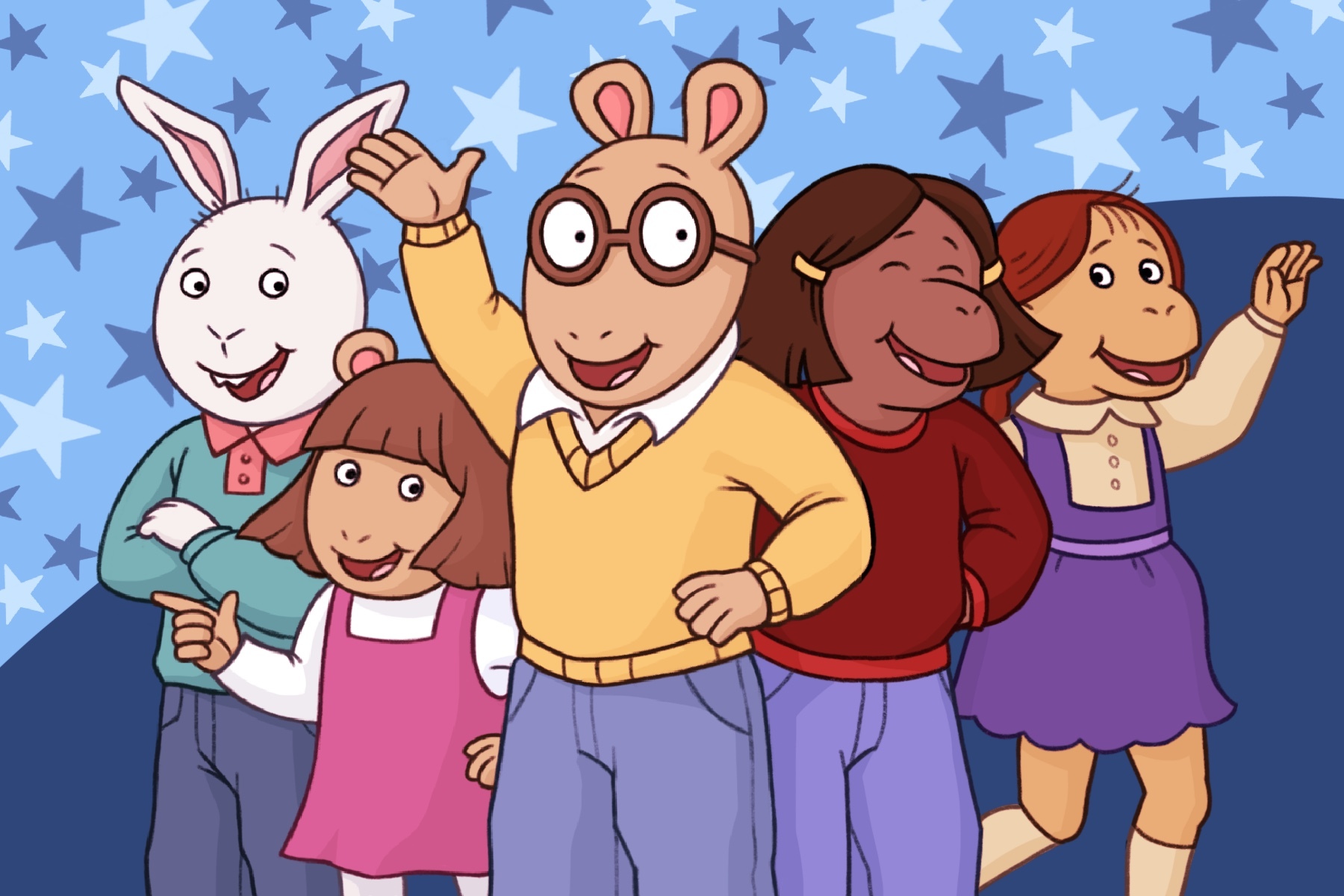A beloved 25-year journey is about to come to an end: Children’s TV show “Arthur” announced that its last season will air in the winter of the upcoming year. After a quarter of a century of watching an aardvark and his adventures with his spirited little sister, his rabbit best friend and a community of anthropomorphic creatures, “Arthur” is no longer in production. In fact, the series had its wrap-up around two years ago.
As the public that grew up with the series mourns its conclusion, “Arthur” leaves behind a legacy of education, representation and relatability that will hold steadfast for many years. Whether it was discussions of global warming, different religions, difficult realities or even just the daily ups and downs of life, “Arthur” wasn’t afraid to cover the nitty-gritty parts of the world that are often removed from children’s television — and the examples of that are endless.
In the episode “Muffy’s Car Campaign,” “Arthur” covers global warming. The series-favorite lunch lady, Mrs. MacGrady, explains pollution to the characters, describing it as “a lid trapping the heat [around Earth].” Arthur and his friends decide to begin a campaign discouraging car travel in order to mitigate these effects. Muffy, whose dad is a car salesman, finds this very concerning, but her classmates don’t hesitate to let her know that global warming is something much more widespread than any one individual.
In that episode alone, “Arthur” covers the detriments of global warming, its causes and how it is a systemic issue that goes beyond the actions of a single person. It was a very mature and educational take on an issue that does not inherently appeal to children. Covering a topic of this magnitude was a standout decision in a genre that generally sticks to the highs and lows of elementary school playground drama. However, this brand of coverage did not stop at environmental issues.
“Arthur” also touched upon the handling of grief in times of illness. In “The Great MacGrady,” Mrs. MacGrady gets diagnosed with cancer. That plot point in itself is incredibly heavy to place into a children’s show, but the series creators didn’t stop there. They also managed to depict all of the forms of grief and concern that accompanied the illness.
In the episode, Arthur and his younger sister, DW, bombard Mrs. MacGrady with soup and well-wishes, being proactive in their grief. Arthur’s friend Francine, however, is unable to overcome her sadness to the point where she could not face Mrs. MacGrady at all. Muffy dealt with her concern through denial, by acting as if nothing had changed in her life. In showing all of these different reactions, “Arthur” acknowledged that grief and fear is neither singular nor one-dimensional. By incorporating these issues into the series, they introduced them to children in a way that was laid-out, subtle and organized.
“Arthur” also covered religious issues and the individual struggle that may come with them. In the episode “Is That Kosher?,” Francine, who is established to be Jewish, struggles with maintaining her fast for Yom Kippur as Arthur’s pizza party nears. She ends up breaking her fast and almost lets her guilt consume her, but her grandmother comforts her and tells her that she’s proud of her for trying regardless. This topic was also quite different from the musings of regular children’s television, especially considering that it aired over 10 years ago in 2008. Touching on something as heavy as individual religion was a risky choice, but one that solidified representation for thousands of children.
All of these concepts that “Arthur” incorporated into its plotlines made for a very sophisticated and educational show that did not underestimate the scope and thinking of its viewers. Children are much smarter than they are given credit for, and discussion of these topics in an unattached, structured manner during their early years is both intellectually and emotionally beneficial. The truth of the matter is that life isn’t just elementary school playground drama — not even for children. They have to deal with relationships, identity and sadness. To pretend that those things aren’t normal is to rob them of natural emotion.
Instead, “Arthur” took all of the rough patches in life and presented them in a way that acknowledged their heaviness, explored the issues that come with them and taught children how to process and move forward. Kathy Waugh, one of the show’s writers, said that the show gave children validation in all their “bad feelings, their mad feelings, their hurt.” Seeing that most of these issues, which would be considered heavy even today, were aired over a decade ago is proof that “Arthur” was simply ahead of its time.
For all of these risks that the creators took and the relatability that they fostered, it is no surprise that audiences meet the cancellation with sorrow. Whether the series raised viewers to be environmentally conscious activists or simply emotionally healthy adults, it made a difference in them. So although the series’s termination is a worthy reason for lamentation, it must be remembered that “Arthur” was a part of countless lives and will continue to live on in people’s morals, interactions and hearts.

















